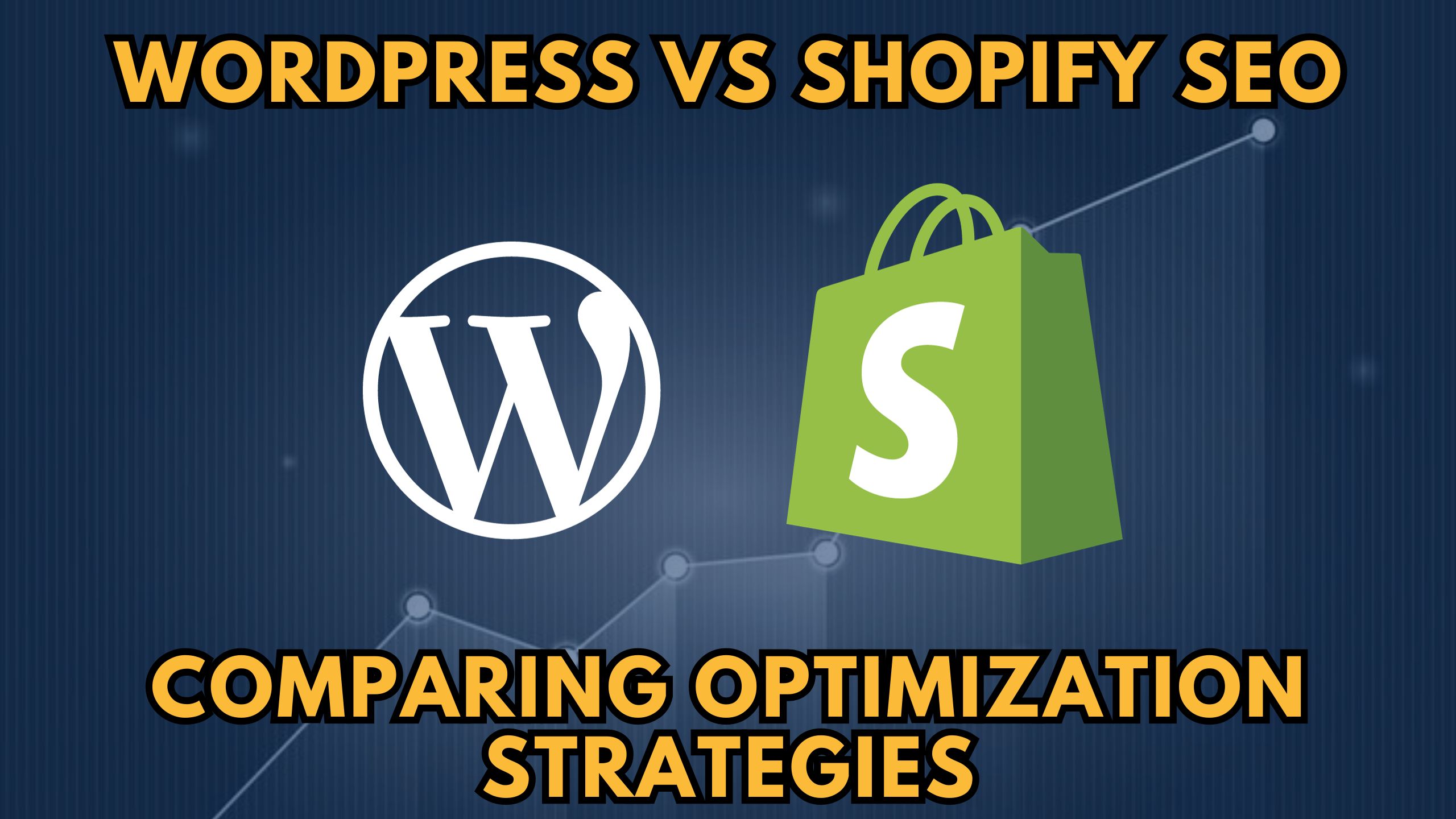WordPress vs Shopify SEO: Comparing Optimization Strategies


WordPress vs Shopify SEO: Comparing Optimization Strategies
When it comes to building an online presence, choosing the right platform is crucial for effective Search Engine Optimization (SEO). WordPress and Shopify are two popular choices, each with its own set of advantages and considerations. In this comprehensive guide, we’ll delve into the SEO strategies for WordPress and Shopify, exploring key factors that influence search engine rankings.
1. Content Management and SEO: WordPress Dominance
WordPress is renowned for its robust content management capabilities, making it a powerhouse for SEO. The platform’s flexibility allows users to optimize content effortlessly, creating SEO-friendly URLs, meta tags, and headings. Additionally, the extensive range of plugins, such as Yoast SEO, enhances WordPress’s SEO potential by providing in-depth analysis and optimization suggestions.
2. E-commerce SEO: Shopify’s Specialized Approach
Shopify, designed specifically for e-commerce, streamlines SEO for online stores. The platform’s clean and responsive design contributes to better user experience, a crucial factor for SEO. Shopify simplifies product optimization with customizable title tags, meta descriptions, and image alt text, ensuring that online stores have a solid foundation for search engine visibility.
3. Speed and Performance: WordPress Agility
Website speed is a critical SEO factor, impacting both user experience and search rankings. WordPress’s agility allows users to implement various speed optimization techniques, such as caching plugins and image compression, resulting in faster loading times. This focus on speed contributes positively to SEO, as search engines prioritize fast-loading websites.
4. Technical SEO: Shopify’s Seamless Integration
Shopify excels in technical SEO by offering a seamless integration of essential elements. The platform handles technical aspects like SSL certificates, canonical tags, and mobile optimization automatically. This hands-off approach allows users to focus on content creation and marketing, confident that their Shopify store adheres to technical SEO best practices.
5. Customization and SEO: WordPress Flexibility
For businesses with unique branding and design requirements, WordPress’s flexibility shines. Customization plays a significant role in SEO, and WordPress allows users to tailor their websites to meet specific needs. From custom themes to personalized content structures, WordPress provides a level of flexibility that contributes to a distinctive online presence, positively impacting SEO.
Conclusion: Choosing the Right SEO Path
In conclusion, selecting between WordPress and Shopify for SEO depends on your specific needs. WordPress offers unparalleled flexibility and content management capabilities, making it an ideal choice for content-heavy websites and blogs. On the other hand, Shopify excels in providing specialized e-commerce solutions with a focus on user experience and technical SEO.
Unlock SEO Excellence with Subscribed.fyi
Elevate your SEO strategy with Subscribed.fyi, the all-in-one solution for understanding, comparing, and managing your SaaS stack. Sign up today to unlock exclusive deals, streamline subscription management, and gain insights that propel your SEO initiatives forward.
Relevant Links:








